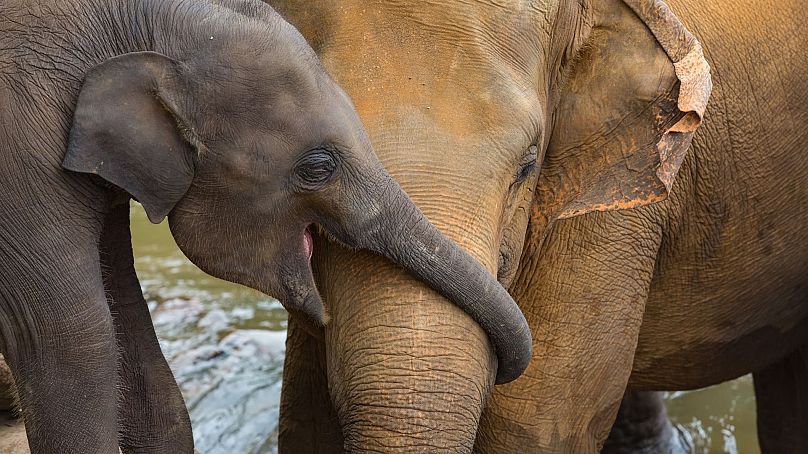There has been a 12 per cent surge in elephant numbers since the last figures were recorded in 2014.
There has been a surge in elephant populations in Kenya, according to the country’s first ever wildlife census.
 ADVERTISEMENT
ADVERTISEMENT
 ADVERTISEMENT
ADVERTISEMENT
The numbers have increased ever since the African nation cracked down on illegal poaching in its fight to conserve vital wildlife.
Poaching is not a sport, it’s an environmental crime posing a major threat to animal populations. Kenya’s use of tracking, forensic science and improved prosecutions have now resulted in a dramatic drop in the poaching.
The report shows an increase in elephants, rhinos, lions, giraffe, Grévy’s zebra and hirola (hunting antelopes) - a 12 per cent surge since the last figures were recorded in 2014, when poaching activity was at its peak. This covers almost 60 per cent of Kenya's land mass overall.
As of this week, Kenya is home to a total of 36,280 endangered elephants.
“As the world grapples with both climate change and human activities that threaten botanical and zoological life as well as their habitats, Kenya is leading the way by implementing bold and decisive actions to conserve and promote our ecological wealth,” says President Uhuru Kenyatta in a statement.
Are elephants endangered?
The International Union for Conservation of Nature (IUCN) warned this year that Africa's elephant population was being decimated by poaching and habitat destruction. Factors such as controlled shooting, human settlements and poaching have gradually eliminated elephants from certain areas in Kenya.
The population of African savanna elephants has descended rapidly by at least 60 per cent over the past 50 years, resulting in their classification as "endangered".
But measures put in place by the Kenyan government to curb elephant poaching in different ecosystems continue to be “productive”, says the report.
The Kenya Wildlife Service (KWS) is reportedly enhancing anti-poaching measures to further stem the illegal activity. Involving local communities in wildlife management is also integral to their wildlife conservation strategy.
“These efforts should be continued to further sustain future elephant population growth and range expansion,” the report concludes.











